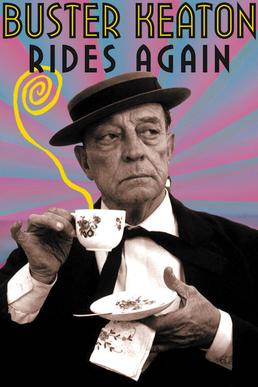Related Research Articles

The National Film Board of Canada is a Canadian public film and digital media producer and distributor. An agency of the Government of Canada, the NFB produces and distributes documentary films, animation, web documentaries, and alternative dramas. In total, the NFB has produced over 13,000 productions since its inception, which have won over 5,000 awards. The NFB reports to the Parliament of Canada through the Minister of Canadian Heritage. It has bilingual production programs and branches in English and French, including multicultural-related documentaries.

William Norman McLaren, LL. D. was a Scottish Canadian animator, director and producer known for his work for the National Film Board of Canada (NFB). He was a pioneer in a number of areas of animation and filmmaking, including hand-drawn animation, drawn-on-film animation, visual music, abstract film, pixilation and graphical sound. McLaren was also an artist and printmaker, and explored his interest in dance in his films.
Roman Kroitor was a Canadian filmmaker who was known as a pioneer of Cinéma vérité, as the co-founder of IMAX, and as the creator of the Sandde hand-drawn stereoscopic 3D animation system. He was also the original inspiration for The Force. His prodigious output garnered numerous awards, including two BAFTA Awards, three Cannes Film Festival awards, and two Oscar nominations.

Arthur Lipsett was a Canadian filmmaker with the National Film Board of Canada. His short, avant-garde collage films, which he described as "neither underground nor conventional”, contain elements of narrative, documentary, experimental collage, and visual essay. His first film, Very Nice, Very Nice, was nominated for an Academy Award.
Robin Spry was a Canadian film director, producer and writer. He was perhaps best known for his documentary films Action: The October Crisis of 1970 and Reaction: A Portrait of a Society in Crisis about Quebec's October Crisis. His 1970 film Prologue won the BAFTA Award for Best Documentary.

Ryan Larkin was a Canadian animator, artist, and sculptor who rose to fame with the psychedelic Oscar-nominated short Walking (1968) and the acclaimed Street Musique (1972). He was the subject of the Oscar-winning film Ryan.
Don Owen was a Canadian film director, writer and producer who spent most of his career with the National Film Board of Canada (NFB). His films Nobody Waved Good-bye and The Ernie Game are regarded as two of the most significant English Canadian films of the 1960s.
The Rise and Fall of the Great Lakes is a 1968 Canadian short film produced by the National Film Board of Canada and directed by Bill Mason. It won the 1971 BAFTA Award for Best Specialised Film.
Colin Archibald Low was a Canadian animation and documentary filmmaker with the National Film Board of Canada (NFB). He was known as a pioneer, one of Canada's most important filmmakers, and was regularly referred to as "the gentleman genius". His numerous honors include five BAFTA awards, eight Cannes Film Festival awards, and six Academy Award nominations.

Buster Keaton Rides Again is a 55-minute 1965 documentary film directed by John Spotton and narrated by Michael Kane. The film is a behind-the-scenes documentary shot while Buster Keaton's film The Railrodder (1965), was being produced. Although it is a production documentary, the film is actually longer than The Railrodder, which was only 24 minutes long. Both films were produced by the National Film Board of Canada (NFB). A French version of Buster Keaton Rides Again, Avec Buster Keaton was also released.
Hugh O'Connor was a Canadian director and producer who worked for the National Film Board of Canada (NFB). His best- known film is the ground-breaking In the Labyrinth (1967), but his promising career ended shortly after that film's release when he was murdered while filming in Kentucky.

Thomas Cullen Daly was a Canadian film producer, film editor and film director, who was the head of Studio B at the National Film Board of Canada (NFB).

Joseph (Joe) Koenig is a Canadian filmmaker and entrepreneur who was the founder and president of Electronics Workbench.
John Spotton C.S.C. was a Canadian filmmaker with the National Film Board of Canada.
Mort Ransen was a Canadian film and television director, editor, screenwriter and producer, best known for his Genie Award-winning 1995 film Margaret's Museum.
John Kemeny was a Hungarian-Canadian film producer whom the Toronto Star called "the forgotten giant of Canadian film history and...the most successful producer in Canadian history." His production credits include The Apprenticeship of Duddy Kravitz, Atlantic City, and Quest for Fire.

Albert Kish was a Canadian documentarian/filmmaker.
Robert Verrall is a Canadian animator, director and film producer who worked for the National Film Board of Canada (NFB) from 1945 to 1987. Over the course of his career, his films garnered a BAFTA Award, prizes at the Cannes Film Festival and Venice Film Festival, and six Academy Award nominations.
Julian Biggs (1920–1972) was a director and producer with the National Film Board of Canada and its first Director of English Production. Over the course of his 20-year career, he created 146 films, two of which were nominated for Academy Awards. His film 23 Skidoo (1964) received two BAFTA nominations, including the BAFTA United Nations award.
Tanya Ballantyne, also known later in her career as Tanya Ballantyne Tree, was a Canadian film director, most noted for her 1967 documentary film The Things I Cannot Change.
References
- ↑ "The Things I Cannot Change". Canadian Film Encyclopedia.
- ↑ "The Tragic Face of Poverty". Montreal Star , April 29, 1967.
- ↑ Frank Daley, "Television". Ottawa Journal , May 4, 1967.
- 1 2 Ina Warren, "Bailey family returns to film". Calgary Herald , December 26, 1984.
- ↑ Matthew Hays, "The Original Reality Show". The Walrus , November 17, 2015.
- ↑ "Canadian Film Festival Winners Booed". Montreal Gazette , August 14, 1967.
- ↑ "The Things I Cannot Change". onf-nfb.gc.ca. National Film Board of Canada. 11 October 2012. Retrieved 8 February 2023.